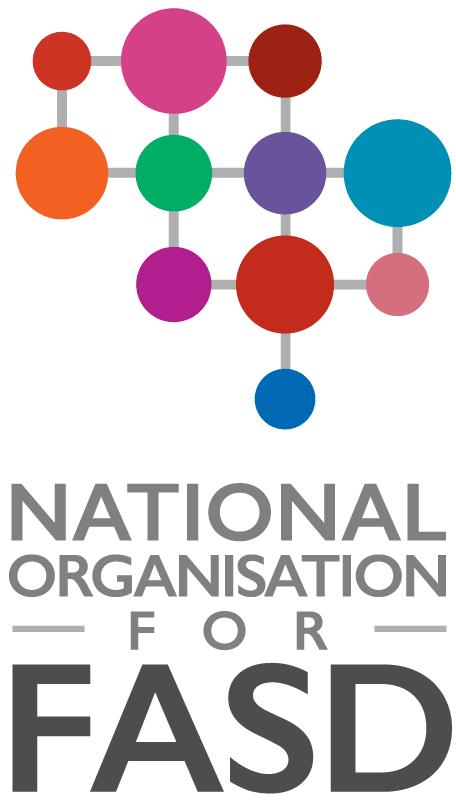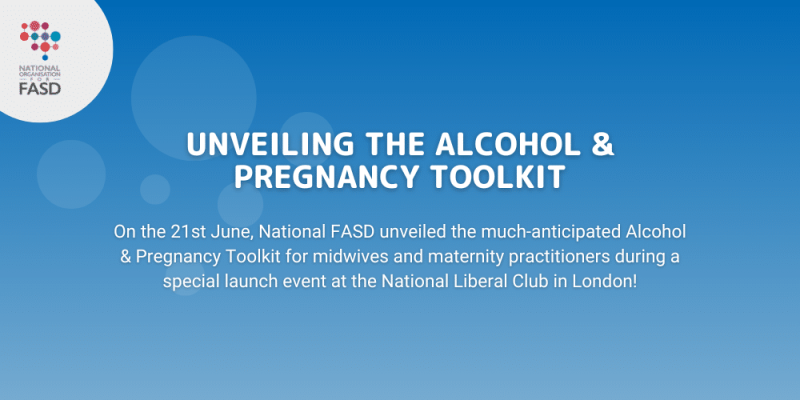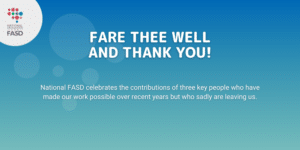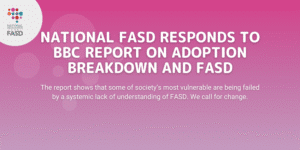On the 21st June, at the National Liberal Club, in the same room where just over a year before we unveiled the Time is Now report, we lifted the curtain on our brand-new Alcohol & Pregnancy toolkit for midwives and maternity practitioners of all kinds.
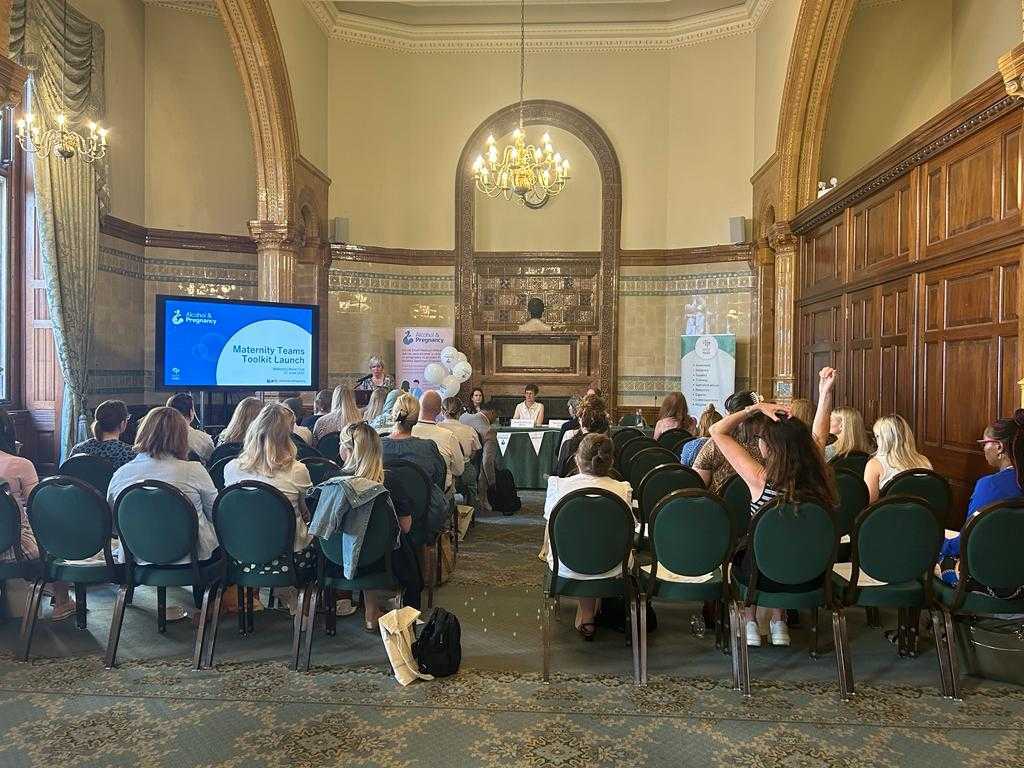
An audience of maternity staff from a range of backgrounds were able to get a first look at the new toolkit and were treated to a series of talks from experts in their fields. Presenters included: Deputy Chief Medical Officer Dr Jeanelle de Gruchy; Specialist Substance and Alcohol Misuse Midwife Laney Holland; Senior Commissioner for Children, Young people and Maternity and National Midwife Research Specialist in FASD and Alcohol Dr Helen Howlett; Consultant psychiatrist and leading UK FASD specialist Prof Raja Mukherjee, Member of National FASD Experts Committee; founder of Birth Mum and Son and Member of National FASD Experts Committee Janet Griffin; as well as National FASD’s Director of Innovation and author of the Alcohol and Pregnancy Toolkit Joanna Buckard. National FASD’s Chief Executive and parent of a young adult with FASD Sandra Butcher opened and closed the event.
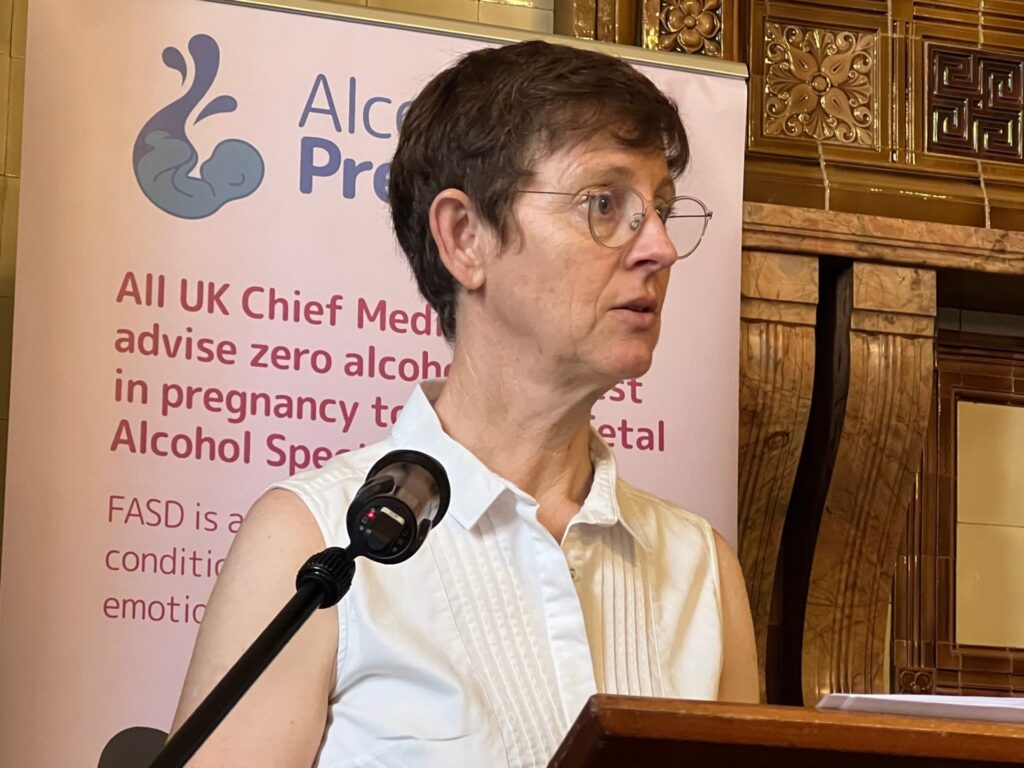
"Thanks to everyone who has worked so tirelessly in developing these resources [...] more needs to be done to reduce the number of alcohol-exposed pregnancies and to support those already living with FASD...hopefully these resources will be shared widely among frontline practitioners."
Deputy Chief Medical Officer Dr Jeanelle de Gruchy Tweet
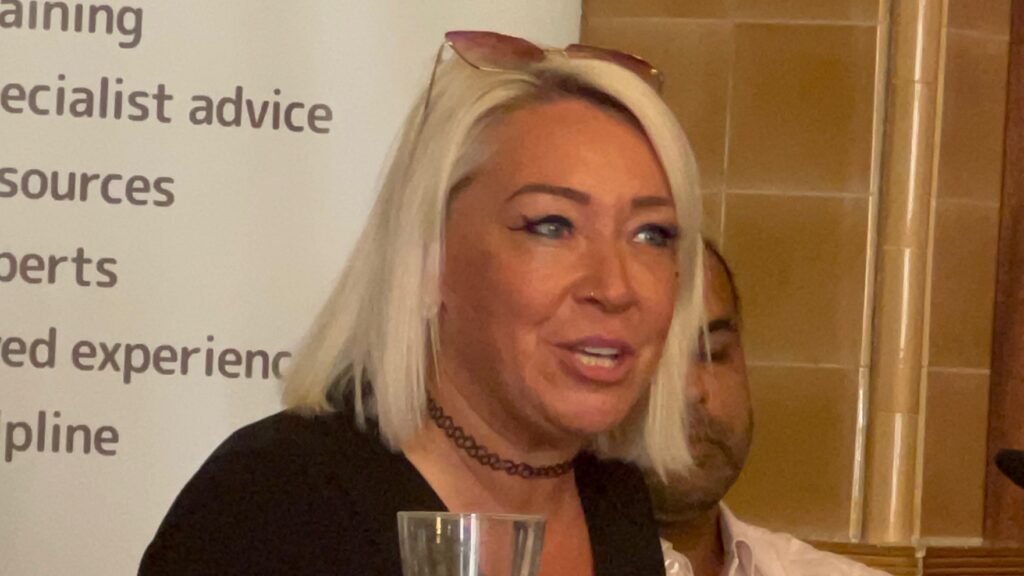
"I’m very excited to know there is a credible resource out there for my colleagues to support their skill base at booking. Exploring FASD as early surveillance and being able to confidently share good information with women is so important.”
Laney Holland, Substance and Alcohol Misuse Specialist Midwife Tweet
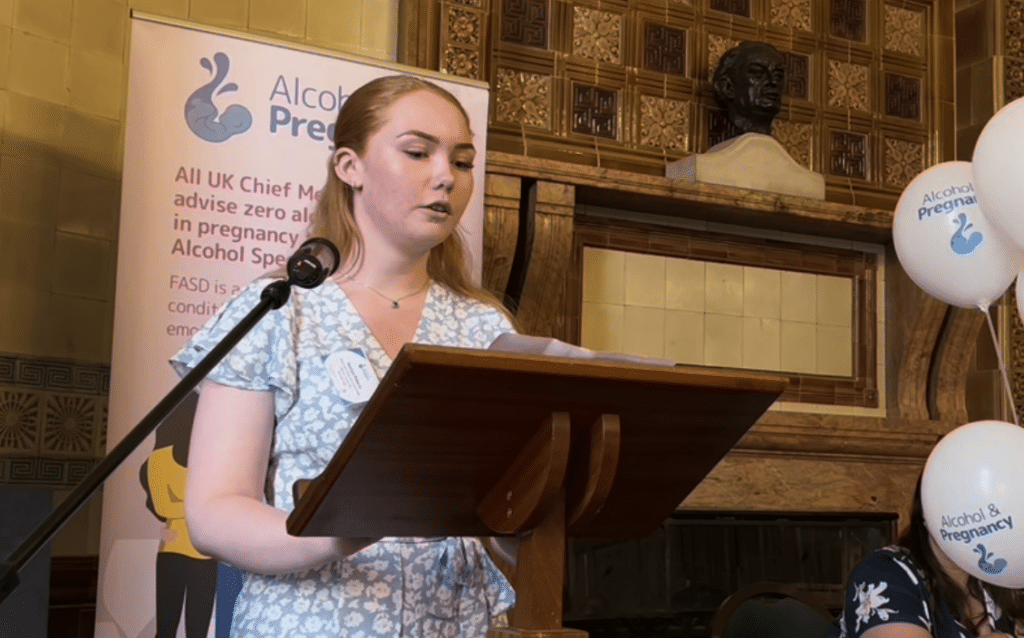
"I really want to get the message to people about the considerable risk involved in drinking while pregnant, or attempting to get pregnant. Midwives and their teams are one of the key players in getting this message across."
Georgia Roberts, Member National FASD Adults and Young Alduts with FASD Advisory Committee Tweet
“Midwives are supported with the toolkit in a quick and efficient way to provide evidence based care and appropriate interventions, women can feel more confident to make positive changes knowing maternity services have supportive steps in place with the toolkit”
Tisian Lynskey-Wilkie, Midwife Tweet
About the Alcohol & Pregnancy toolkit
Created with input from some the country’s leading experts, the Alcohol & Pregnancy toolkit is made up of two main components: a free, CPD-accredited, interactive e-learning course, and a suite of practical resources designed to help maternity practitioners of all kinds implement their training in their day-to-day conversations with women about alcohol use in pregnancy.
The toolkit includes a CPD-accredited, free-to-access, interactive e-learning course designed to help midwives and other maternity staff to understand the latest alcohol and pregnancy policy and guidance.
It also suggests ways to have effective conversations about alcohol and pregnancy in an informed and compassionate way.

"The new Alcohol and Pregnancy e-course is really accessible with videos and complicated information provided in bite-sized chunks. It’s an easier way to learn about alcohol use in pregnancy and FASD rather than simply reading about it in a textbook. The course includes case studies which provide examples of how interactions might look and the outcomes that might be achieved. This helpfully shows Midwives to see how their interventions might look in their day to day work."
Specialist Midwife in Drug and Alcohol Use Tweet
The Alcohol & Pregnancy toolkit also includes a full suite of practical resources, beautifully designed and expert-approved, to help maternity staff in their day-to-day conversations with women about alcohol and pregnancy.
These include:
- Reversable posters with space for local contacts
- Fast-fact Z cards for practitioners
- ‘What you need to know’ leaflets
- Tabletop guide to help practitioners during consultations
- Alcohol & Pregnancy pull-up banners
- Alcohol & Pregnancy bunting
- Alcohol & Pregnancy balloons
“The new Alcohol and Pregnancy e-course is really accessible with videos and complicated information provided in bite-sized chunks. It’s an easier way to learn about alcohol use in pregnancy and FASD rather than simply reading about it in a textbook. The course includes case studies which provide examples of how interactions might look and the outcomes that might be achieved. This helpfully shows Midwives to see how their interventions might look in their day to day work.”
Debbie Reid, Specialist Midwife in Drug and Alcohol Use Tweet
FASD is a lifelong neurodevelopmental condition that affects more people in the UK than autism, and yet is completely preventable. Midwives and other maternity practitioners play a crucial role in FASD prevention by helping to communicate with pregnant women about the ongoing risks of alcohol consumption during pregnancy.
Alcohol use in pregnancy also risks miscarriage, premature birth, and stillbirth.
The Alcohol & Pregnancy Toolkit will help reduce the harm caused by alcohol-exposed pregnancies, including FASD.
The messages around drinking alcohol in pregnancy have often been confusing, previously leaving maternity staff unclear about what is the best advice. Midwives have reported anxiety about discussing alcohol and a lack of knowledge about alcohol screening and guidance (PHE, 2020).
Following the Chief Medical Officers’ guidance in 2016, ‘If you are pregnant or planning a pregnancy, the safest approach is not to drink alcohol at all…’, there has been additional guidance on alcohol and pregnancy and FASD from DHSC (2021), NICE QS 204 (2022) SIGN 156 (2019) PHE (2020), calling for more professional awareness and training.
The National Organisation for FASD was founded in 2003. For twenty years we have been promoting alcohol free pregnancy as well as diagnosis and support for those with FASD. Our earlier work is estimated to have reached more than 16,000 midwives. These new materials have been made possible thanks to funding from Diageo.
